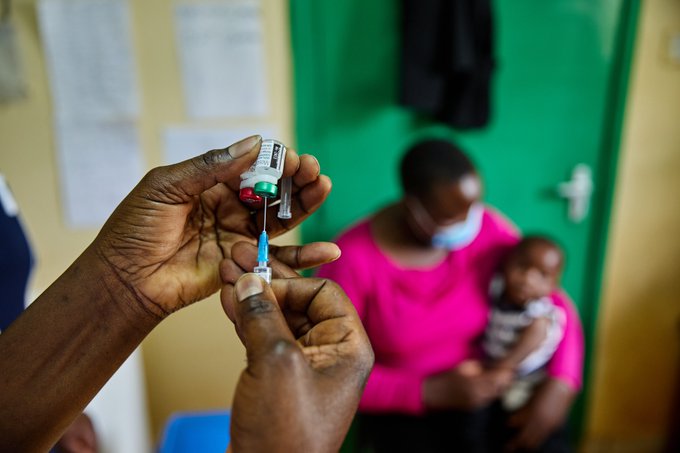In an extraordinary and shocking turn of events, a German surgeon unknowingly became a victim of a rare form of cancer after accidentally cutting his hand while performing surgery on a cancer patient. The unusual case has raised serious concerns about the unintended risks healthcare workers face during procedures.
The surgeon, a 53-year-old man, was operating on a 32-year-old patient diagnosed with malignant fibrous histiocytoma, a rare and aggressive form of cancer. The tumor was located in the patient’s abdomen, and the surgery was meant to remove it. However, as the surgeon was working to place a drain, he accidentally cut the palm of his left hand. Despite immediate disinfection and bandaging of the wound, what seemed like a routine injury would later spiral into a medical mystery.
Five months later, the doctor noticed a suspicious lump developing at the site of the injury. Initially, it seemed like a simple irritation or scar tissue, but the lump continued to grow. Alarmed, he sought medical attention, and after a series of tests, the lump was found to be malignant. Further analysis revealed that the tumor cells were genetically identical to those found in his patient’s cancer.
“At first, it was unbelievable,” the surgeon shared. “I had operated on this patient, but I never thought something like this could happen to me.”
Medical professionals investigating the case were initially baffled. The surgeon’s diagnosis prompted further investigation, and it soon became clear that he had, in effect, “caught” cancer from his patient through the accident. Tumor cells, somehow, had entered his body via the cut in his hand and continued to grow.
The case, first reported in 1996, resurfaced recently in the prestigious New England Journal of Medicine, reigniting interest in this rare medical phenomenon. The surgeon, whose identity has not been disclosed, had already treated his patient, a young man who had been diagnosed with the rare form of cancer. Unfortunately, the patient passed away following complications from the surgery.
What makes this case so unique is the way the surgeon’s immune system responded—or, rather, failed to respond—to the cancerous cells. Under normal circumstances, the body’s immune system would identify and reject foreign tissue, including cancer cells. However, in this case, the surgeon’s immune system did not mount an effective response. Instead of rejecting the tumor, his body allowed the cancer cells to take root and grow.
Dr. Petra Fischer, one of the medical experts involved in the investigation, explained, “What we saw was something extraordinary. Normally, when foreign tissue enters the body, the immune system detects and destroys it. But in this case, the surgeon’s body failed to do so. This is what makes this case so unprecedented.”
A series of laboratory tests confirmed that both tumors—the one in the surgeon’s hand and the one removed from the patient’s abdomen—were genetically identical, making it virtually certain that the surgeon had contracted the cancer during the surgery. “There is no other plausible explanation for this,” said Dr. Fischer.
According to the medical report, the surgeon’s injury occurred when he was trying to insert a surgical drain into the patient’s abdomen. The surgical cut on his hand was immediately disinfected and bandaged, but the subsequent appearance of a tumor in the same area was highly suspicious.
The unusual nature of the case has prompted further studies into the mechanisms by which cancer cells can spread through accidental contamination. Researchers speculated that the tumor “escaped immunologic destruction” by employing certain biological strategies, including molecular changes that helped the cancer cells avoid detection by the immune system.
“While it is rare, this case underscores how complex and unpredictable cancer can be,” said Dr. Fischer. “It challenges everything we thought we knew about the body’s ability to defend itself against foreign cells.”
Although the surgeon was initially worried about the tumor’s spread, two years after the surgery, there were no signs of the cancer metastasizing to other areas of his body. The surgeon underwent surgery to remove the malignant growth from his hand, and he has since been monitored regularly for any signs of recurrence. Fortunately, there have been no reports of cancer returning.
Despite the resolution of his case, the surgeon remains a somber figure within the medical community. “I am fortunate that this was caught in time. But the fact remains that this was an accident that could have led to something far worse,” he remarked. “We cannot afford to take our own health for granted while treating others.”
This case also raises questions about the precautions taken by surgeons during high-risk procedures. While there is little evidence to suggest that such occurrences are common, this particular case highlights the potential dangers healthcare workers face on a daily basis, even in seemingly routine surgeries.
“The risks of infection and injury during surgery are well known,” said Dr. Samuel Obiora, a Nigerian surgeon. “But cancer transmission through an accidental wound? This is truly something we never thought we would see.”
As medical professionals and researchers continue to investigate how such a rare event could occur, the case serves as a sobering reminder of the vulnerabilities healthcare workers face. It also underscores the importance of strict adherence to safety protocols and vigilance, not only for the safety of patients but also for the healthcare providers themselves.
In the end, the surgeon’s experience offers a new and unsettling perspective on the relationship between medical practitioners and the patients they treat. While this case may be one in a million, it has sparked a deeper conversation about the risks and realities of working in the medical field. As Dr. Fischer concluded, “This case is a rare occurrence, but it opens the door to many more questions about how we handle diseases and their transmission in the medical world.”

